Chemical-recycling – Automotive-manufacturers 24-03-2022 - Arhive
Chemical-recycling – Automotive-manufacturers
Crude Oil Prices Trend
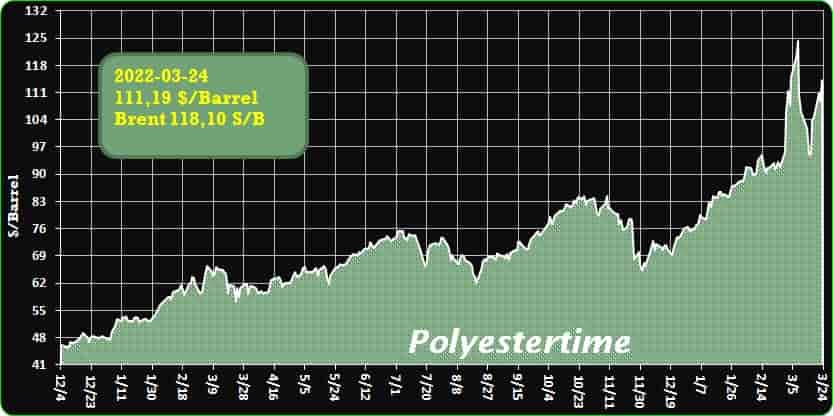
BASF has signed a strategic cooperation agreement with Zhejiang REEF Technology Co., Ltd. to develop state-of-the-art recyclate formulations for applications used in the automotive, packaging and consumer industries.
Under the agreement, BASF will provide its recently launched IrgaCycle™ additive solutions along with technical consultancy and support for recycled polymer formulations conducted at BASF’s test facilities.
“Our goal is to help deliver higher quality, safer and more effective products while supporting the plastic circular economy and helping reduce the use of virgin plastic material,” says Hermann Althoff, Senior Vice President, Performance Chemicals Asia Pacific. “In this way, we support our customers and partners to achieve their sustainability targets and create sustainable innovations together.”
“We wanted to partner with a world-class manufacturer of plastic additives like BASF to improve the quality of our recyclates,” says Shirley Wu, General Manager, REEF. “With its in-depth expertise in plastic additives, BASF supports us in this core area by improving the processing and long-term stability of highly contaminated recycled plastic fractions.” Chemical-recycling – Automotive-manufacturers
IrgaCycle™ additive solutions help to increase the percentage of mechanically recycled content in several end-use applications such as packaging, automotive & mobility, and building and construction. These solutions address specific quality issues associated with recycled resins, such as limited processability, poor long-term thermal stability and insufficient protection from outdoor weathering.
The IrgaCycle range is offered as part of the VALERAS™ portfolio. In addition to enabling plastics circularity with IrgaCycle, VALERAS solutions bring significant sustainability value to plastic applications by improving durability, reducing waste, saving energy, reducing emissions, and promoting biodiversity.
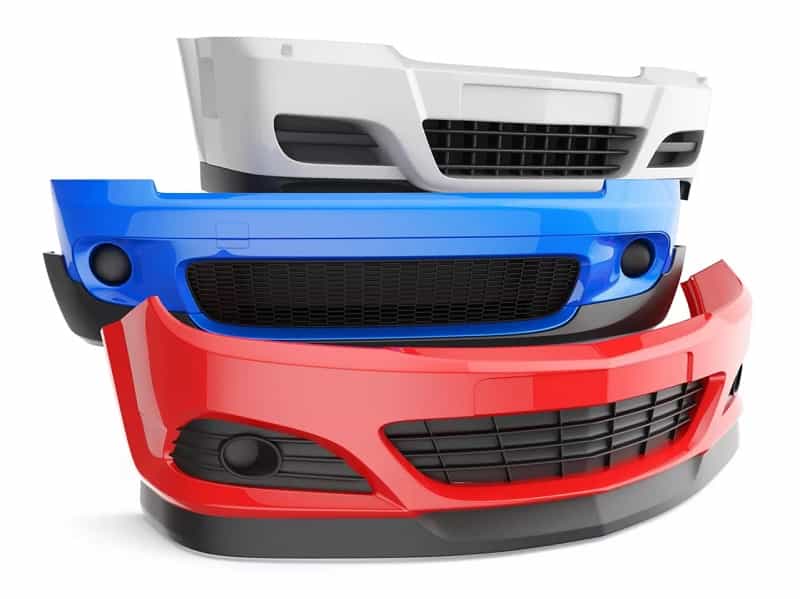
-The NEOREC Project: A second life for difficult materials
The European Tyre and Rubber Manufacturers Association (ETRMA) estimates that up to four million tonnes of end-of-life tyres are generated each year in Europe, and Spain alone accounts for 300,000 tonnes.
Most of the polyurethane foam from the automotive industry, mattresses and similar products is landfilled, not to mention other difficult-to-recycle plastic waste such as wire waste. According to Plastics Europe, more than 6.5 million tonnes of plastic are sent to landfills each year. Chemical-recycling – Automotive-manufacturers
AIMPLAS, as part of the NEOREC Project, is developing advanced chemical and mechanical recycling solutions to prevent this complex waste being sent to landfill by using it to obtain industrial materials and substances.
Chemical recycling processes such as anaerobic degradation are being studied and developed in order to isolate and select micro-organisms that anaerobically biodegrade biopolymers faster than conventional organisms. The endgame is to establish a faster, more efficient recycling process.
Work is also being done to use partial chain-breaking processes to obtain plastics with the same initial specifications. Chemical-recycling – Automotive-manufacturers
Chemical Recycling Group Leader Eva Verdejo said “the goals is to reduce the consumption of resources by reintroducing high value-added materials back into the value chain and generating products and by-products that can be used in the plastics industry, thus minimising the environmental impact of waste accumulation”.
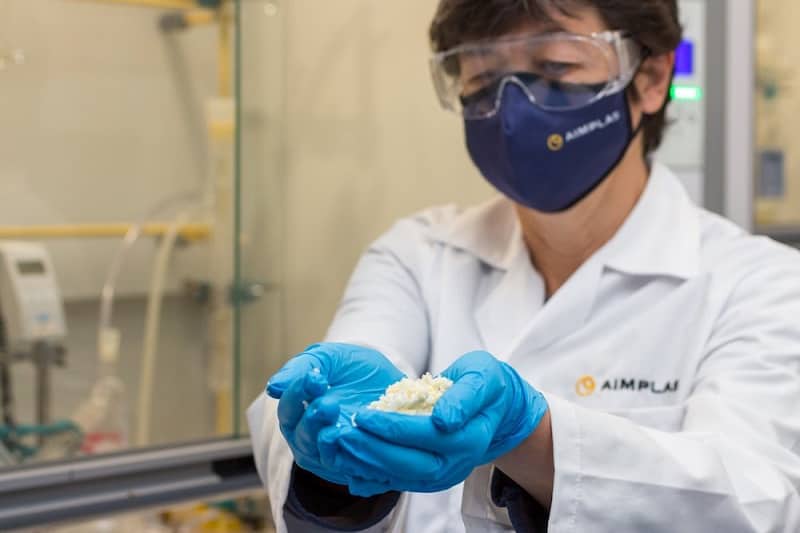
Plastic Omnium, the world leader in exterior systems, is putting into service a 2,700-tonne dual-compound press at ∑-Sigmatech, its dedicated exterior component research and development center located near Lyon in France.
Plastic Omnium will use the new equipment to work with automotive manufacturers on designing, proposing and approving exterior body components that innovate in terms of their dimensions, aesthetics and integrated functions
The press is designed to allow two materials to be injected simultaneously, making it possible to produce parts with larger transparent surfaces than current products.
This opens new possibilities for automotive manufacturers that are looking for ways to integrate lighting and sensors into exterior body parts.
Offering optical and electromagnetic transparency with freedom of design, these new systems cover the total width of a vehicle and will boost Plastic Omnium’s position in the fast-growing market for electric and connected vehicles.
The installation represents an investment of over €3 million for the press and associated finishing equipment (painting, decorating and assembling).
Plastic Omnium’s investment was partly covered by a subsidy as part of the Innovative Materials and Design for Intelligent Body Panels project supported by BPI, the French public investment bank. Chemical-recycling – Automotive-manufacturers
For this new facility, Plastic Omnium partnered with ARaymond, the global provider of fastening and assembly solutions, and Cetim, a mechanical industry technical center.
The partnership aims to develop enhanced features — signaling, radar, lidar, optical sensors, etc. — as part of an ecodesign process that delivers the best possible environmental footprint.
Integrating these new technologies into the production process will consolidate Plastic Omnium’s technological leadership in intelligent exterior body systems.
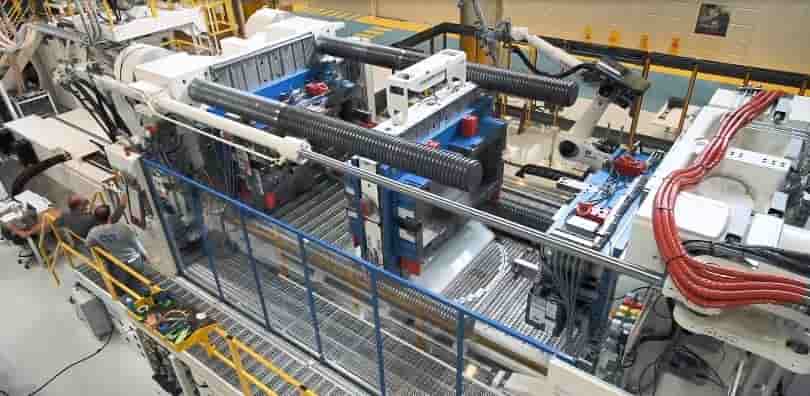
-Chemical recycling projects: plans aplenty, but doubt remains
A new trend study has been compiled by ecoprog GmbH, a consulting company in environmental and energy technology with the aim of providing insight into the current state of affairs in chemical recycling. Chemical-recycling – Automotive-manufacturers
Chemical recycling is one of the most divisive issues in waste management today. Supporters of the technology are quick to point to its benefits: the ability to recycle formerly ‘unrecyclable’ plastics without downcycling, hence solving both a waste and feedstock problem in one go
Detractors of the technology, however, are highly critical of the high CO2 emissions it involves. They argue that waste streams are being diverted from a more climate-friendly mechanical recycling process and that in many cases, there is no ‘recycling’, just incineration in disguise.
Now, in an attempt to provide more clarification, ecoprog has produced an in-depth look at the global market for chemical recycling – with the following results.
The report found that at the end of 2021, more than 90 projects for the chemical recycling of plastics were in various stages of development worldwide; more than 20 plants were in operation. Chemical-recycling – Automotive-manufacturers
The majority, however, had not yet reached the stage where they could be qualified as final commercial plants, but mainly served for further research of this technology.
Yet it became apparent that the planning of chemical recycling plants is booming, with worldwide, more than 90 projects planned at the end of 2021, of which the lion’s share in Europe.
The most important driver of the currently so dynamic market development is the potential of chemical recycling in plastics production, combined with possible recyclable quotas. On the positive side, there is speculation that chemical recycling will soon be recognised in the waste hierarchy. The newly elected German coalition government has already indicated a willingness to do so.
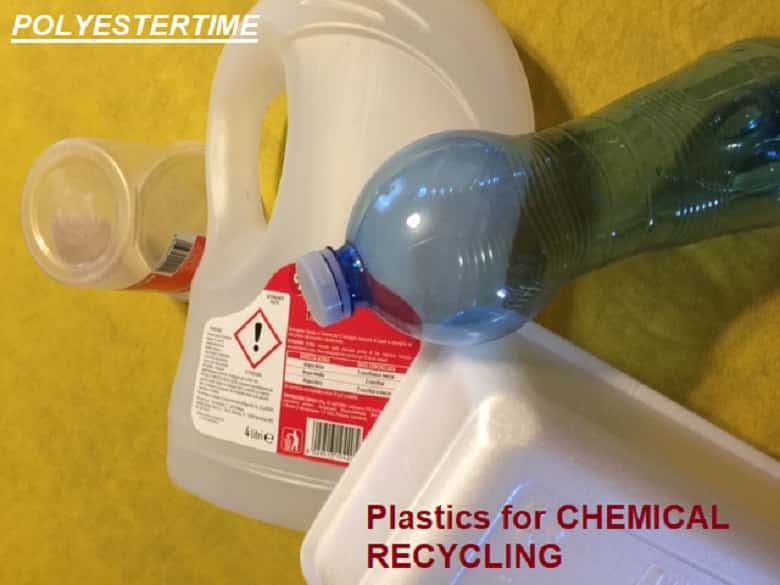
-Sunlight powers chemical recycling of polyethylene
A composite converts light into heat that drives chemical breakdown of PET into monomers
Catalytic processes to chemically break down polyethylene terephthalate (PET) typically require high temperatures that consume a lot of energy.
Researchers have now designed a system that uses sunlight to drive the catalytic breakdown of this common plastic into valuable monomers (Matter 2022, DOI: 10.1016/j.matt.2022.02.002). Chemical-recycling – Automotive-manufacturers
The solar method should save 3.7 gigajoules of energy and 0.4 metric ton of carbon emissions for each ton of recycled PET compared with conventional catalytic methods, Soochow University chemist Jinxing Chen says.
For their solar-driven upcycling method, Chen and his colleagues relied on two photothermal materials—carbon nanotubes and polydopamine—which absorb sunlight to produce heat locally.
The researchers coated the nanotubes with polydopamine, then suspended them in ethylene glycol along with an ionic liquid catalyst.
They added flakes of PET to this mix and placed it in the sun, which caused the photothermal composite to heat up to 150 °C.
This heat and the catalyst triggered the ethylene glycol to break ester linkages in PET, producing high-purity bis(2-hydroxyethyl) terephthalate (BHET) powder. Higher light intensity and exposure time boosted yields. The researchers repolymerized the monomers into PET. Chemical-recycling – Automotive-manufacturers
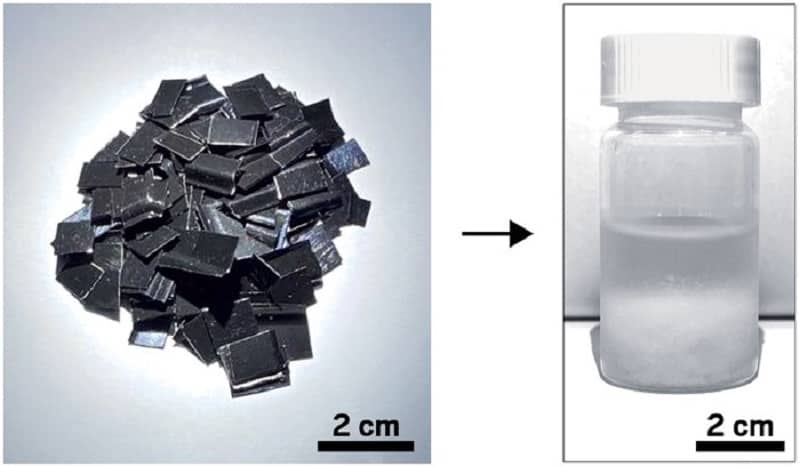
-Retail welcomes expansion of national plastic recycling fund
The Australian government has announced an additional investment of $60 million in the Recycling Modernisation Fund, bringing the total investment to $250 million.
The fund will focus on advanced plastic recycling technology and tac
kle problematic single-use plastics like bread bags, chip packets, cereal box liners, chocolate wrappings. Chemical-recycling – Automotive-manufacturers
“This new funding stream, dedicated to helping solve the problem of hard to recycle plastic waste, demonstrates our determination to invest in Australian industry, to grow the recycling sector and to create a stronger economy and stronger future for Australia,” said Scott Morrison, Prime Minister.
Australian Retail Association CEO Paul Zahra said the newly announced initiatives will help provide retailers with more options to embrace the circular economy, improve recycling rates and reduce the amount of waste sent to landfills.
Major grocery and food manufacturers, such as Arnott’s, Unilever, Mars Wrigley and others along with the Australian Food and Grocery Council (AFGC), also welcomed the announcement.
AFGC CEO Tanya Barden said that the grocery and manufacturing industry is committed to creating an effective and sustainable circular economy for plastic packaging.
“Our industry understands that we must maximise recycling to reduce the use of virgin plastics, build Australia’s advanced recycling capabilities and avoid harmful effects on the environment.”
Minister for the Environment Sussan Ley said the funding will ‘fast track’ access to advanced recycling infrastructures. Chemical-recycling – Automotive-manufacturers
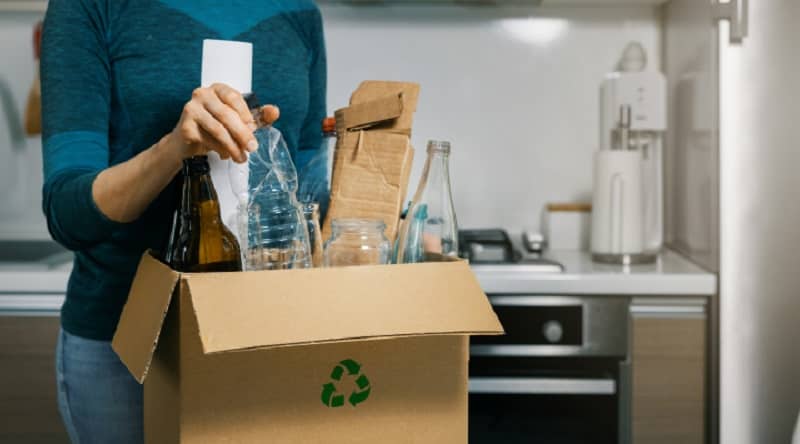
Chemical-recycling – Automotive-manufacturers
